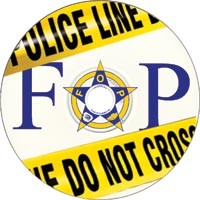Here's where things stand in the Case of the Great Press Release Hoax. Warrants have been issued to track down those who embarrassed the Fraternal Order of Police early this year. Police have raided local businesses. Computer hard drives have been seized, then scoured by investigators.
The only thing left to do now is ... decide whether anyone committed a crime.
The case began Jan. 10, when media outlets received a fake press release concerning the alleged January 2010 police beating of Homewood teen-ager Jordan Miles. The e-mailed statement, printed on a phony version of the FOP's letterhead, claimed the union no longer backed the three officers accused, because doing so "hampered public confidence" in police.
The e-mail was almost immediately recognized as a hoax, but police called for criminal charges. "If we catch anyone with regard to this," FOP President Dan O'Hara told the Pittsburgh Tribune-Review, "it's going to be multiple felonies."
Or is it?
According to Mike Manko, spokesperson for Allegheny County District Attorney's office, police approached the DA in early February for "advice on whether or not any laws were broken." That was weeks after seven police officers raided the Dreaming Ant video store in Bloomfield, trying to chase down whoever used its wireless network to e-mail the release. (It would also be after police told City Paper and other outlets that charges would likely involve trademark counterfeiting, identity theft and fraud.)
Some observers say the police should have sought out legal guidance before the Jan. 19 raid ... especially because once its computer was impounded, Dreaming Ant was forced to close for two days.
David Harris, a law professor at the University of Pittsburgh, says that in run-of-the-mill cases, police often launch an investigation without first seeking the DA's input. But he believes this case should have been an exception.
For one thing, he says, it's a potential conflict of interest for the police to be investigating the matter, since their own union was the target. "If there is a victim here, it's the FOP," he says. "That alone calls for the DA making the judgment."
It's also not clear there was a victim here: Arguably, the release was just a pointed political satire. "It seldom comes up that anyone would think to charge this as a crime," Harris says. That makes seeking advice from prosecutors an even better idea.
When an incident is unusual, police typically seek out the DA's input early on, agrees Bruce Antkowiak, a Duquesne University law professor. "They are going to need guidance: 'Does this fit the criteria of a crime?' And 'Would you be willing to press charges?'"
Prosecutors haven't yet decided. In an e-mail, Manko said the DA's office "[has] yet to make a recommendation" to the police.
Could police have launched this investigation merely to learn the identity of their hoaxer? That's unclear. Manko would not comment on whether police have the name of a suspect. Pittsburgh police spokesperson Diane Richard referred questions to the FOP's O'Hara. He declined comment, stating in an e-mail, "I am a victim in this investigation."
That's exactly the point, says Beth Pittinger, executive director of the Citizens Police Review Board. "From the get-go, it was completely inappropriate for the police to conduct the investigation, because they are involved in it."
















